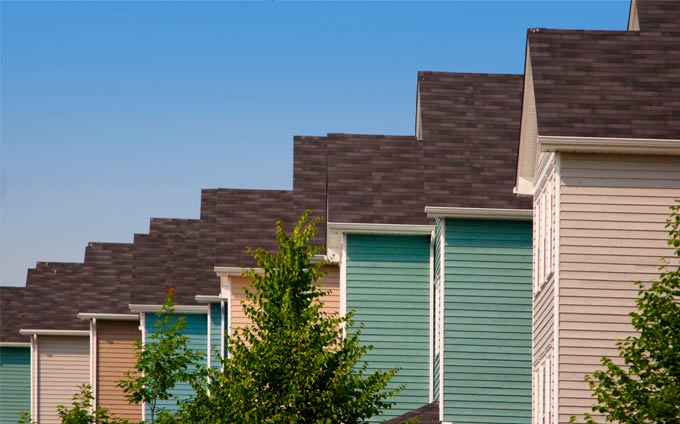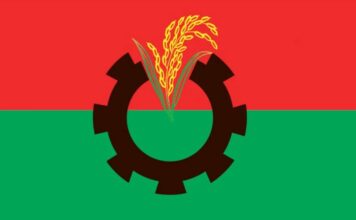Written by Realtor Shihab Uddin

The Quebec government will examine the influence of foreign investors on the real estate market. This special measure is mainly being taken to monitor whether someone who is not a citizen of Canada is destabilizing the real estate market in Quebec. As a result, every buyer-seller has to compulsorily confirm his nationality. This special system is going to be effective from October 1, 2020.
Until 2018, Quebec's real estate market was pretty quiet. The upward trend in house prices that started since then is still going on Prices of all types of properties continue to rise. Montreal home prices rose by 24% from the same period last year, according to APCIQ, the professional association of Quebec real estate brokers, according to August 2020 figures, up from 18% in the July figure a month earlier. Monthly, quarterly or semi-annually, according to the data obtained from all the statistics, there is an alarming increase in the average property value compared to the previous year. Listings falling as prices rise, multiple offers against each listing, properties selling above asking price – these are now commonplace in Quebec's real estate market. This reckless growth was initially observed on Montreal Island, but soon spread to neighboring Laval and almost all cities on the South Shore. In the initial stages of the over price trend, properties were selling for 1/2 thousand above the asking price, then 1 to 2%, now it has gone above 50 thousand to 1 lakh dollars.
According to available data, looking at Toronto and Vancouver, the number of non-resident investors is much higher. Non-resident investor presence in Toronto was 7.2% and Vancouver was 13.2% in 2016/2017 respectively.. that As such, they do not have first-hand data on the presence or absence of non-resident investors in the Quebec real estate market. According to data compiled by JLR Solutions released in the 2020-2021 budget, the presence of foreign buyers in Quebec and Montreal Island is not significant. The proportion of foreign buyers in all real estate transactions in Quebec was 1% in 2018/2019. In a similar observation, the proportion of foreign buyers in Montreal Island is 3% This source of statistics has nothing to do with field level observations. And so with this new declaration, the Quebec government is keen to know what this number actually is, which will help them make future decisions..

Regarding the presence of non-resident investors, Jacques Delorme, head of the media department of the provincial Ministry of Finance, said on September 1st, "In recent years, it has been seen that foreign buyers have dominated the Canadian real estate market, playing a controlling role in destabilizing the market, especially by increasing home prices." "Some provinces like British Columbia and Ontario have enacted legislation to control this phenomenon," he said.
Note that non-resident buyers in Vancouver and Toronto have to pay a special tax of 15% to 20% on the value of the property purchased. It can be compared to pressing the brakes to a large extent. This special arrangement was originally designed to help local citizens invest in the increasingly expensive housing market. tax of imposing As a result Home in these two cities the price That's perfectly in control has arrived that to say chance Although no, still the subject Taking into account skyscraper worth on a break Chapa is definitely a visionary initiative
However, no action is being taken regarding this stricture. Sylvain Carrier, press relations representative of the Ministry of Energy and Natural Resources, said, “Before discouraging foreigners from looking for safe investments here, we need to know if they are actually present in significant numbers. Therefore, Quebec intends to continue statistical monitoring to verify the potential impact of non-residents on the real estate market. This issue has been discussed in Quebec's National Assembly for several years.” He also said, "In early 2013, the Quebec government was recommended by various quarters to pay special attention to the situation of the real estate market and to assess the volume of transactions conducted by foreign buyers..”
Although various laws and draft regulations have been amended and added to regulate the real estate market over the years, the finishing touch has been missing. This time it was implemented through mandatory verification of nationality of buyer and seller in the case of real estate or real estate trust.

The government wants to know whether the buyers are resorting to ingenuity in this regard, or whether they are using other strategies by evasion. In that case, it should be clearly mentioned whether the buyer is willing to use the purchased property as their primary residence for his family members.. The information provided by the buyer in this regard will not be published anywhere, however It will be forwarded to the Finance Ministry for policy development on economic, revenue, budget and financial matters.
There is no reason to believe that this move by the Quebec government will have any effect on house prices anytime soon. As long as non-resident investors like those in Toronto and Vancouver are not taxed extra on Canadian home purchases, it's unlikely we'll see any change.

Author: Engineer Shihab Uddin,
Real Estate Broker, (514) 368 9000










